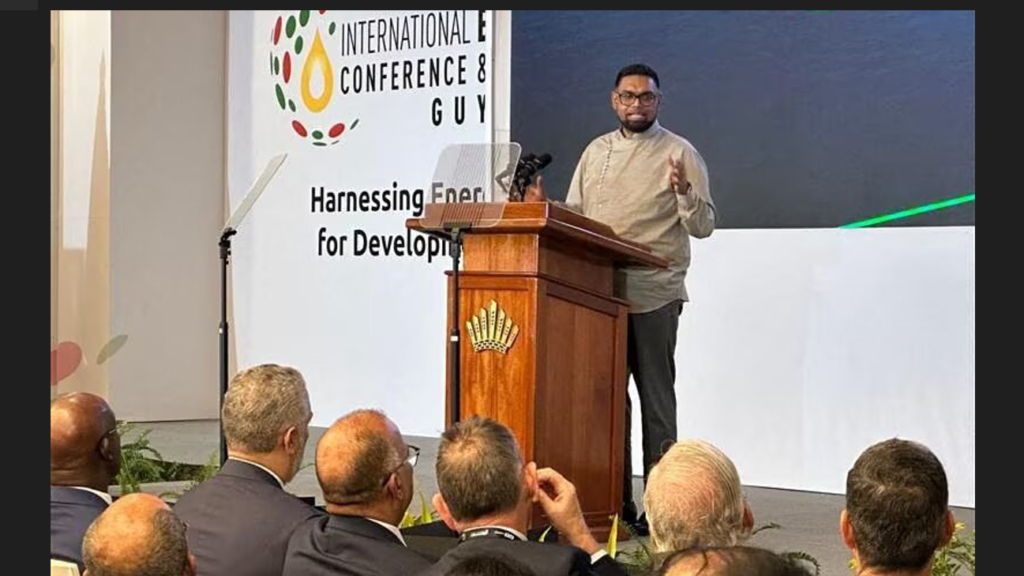PORT OF SPAIN (Reuters) — Trinidad and Tobago is inviting its energy-rich neighbors to process their oil and natural gas in the Caribbean country to produce commodities such as liquefied natural gas (LNG) or petrochemicals, hoping to use its spare capacity.
Due to a lack of natural gas output, Trinidad has an idle liquefaction train that could be reactivated to convert others’ gas into LNG for exports, and has room to increase production of petrochemicals.
“We are open to discussion with our other Caribbean neighbors on the monetization of their hydrocarbon resources in Trinidad and Tobago,” Prime Minister Keith Rowley said at Guyana’s International Energy Conference in Georgetown.

“Linking the energy and industrial transformations to a collaborative economic strategy would ensure that the region makes the most out of its abundant oil and gas resources,” he added.
Trinidad’s hydrocarbon processing capacity includes three liquefaction trains in service, seven methanol plants and 10 ammonia plants that can produce 5.2 million metric tonnes per year. The country in January received a U.S. license allowing joint development of Venezuela’s promising Dragon offshore field and gas imports for LNG output.
Trinidad’s government has said it will export a portion of the LNG to be produced from Venezuela’s gas to Jamaica and Dominican Republic.
Rowley also said Trinidad had pursued a “deliberate policy” to engage its regional neighbors including Venezuela, Barbados, Grenada, Guyana and Haiti for co-operation in the energy sector.
Trinidad produces about 2.8 billion cubic feet per day of gas, according to official data.
Reporting by Curtis Williams and Sabrina Valle; Writing by Marianna Parraga; Editing by David Holmes
Our Standards: The Thomson Reuters Trust Principles.




Pingback: Trinidad Invites Neighbors to Process Oil and Gas in the Country – Virgin Islands Free Press - CaribbeanNewsRoundup.com